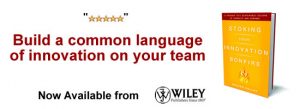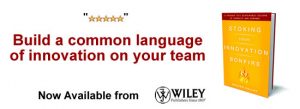Why Smart Politicians Will Dump Polls and Go Predictive
 Politicians in the U.S. seem like they couldn’t think or utter a sentence without leaning on polls. And in the upcoming presidential election season, polls will sort out who’s up, who’s down, who has the best hair, which issues are most important, and on and on.
Politicians in the U.S. seem like they couldn’t think or utter a sentence without leaning on polls. And in the upcoming presidential election season, polls will sort out who’s up, who’s down, who has the best hair, which issues are most important, and on and on.
It’s all so twentieth century. Polls are doomed.
Polls inherently measure what’s happened in the past. Sooner or later, a forward-thinking politician is going to figure out a way to ditch polls and get out ahead of everybody by using predictive technology — what I call “two-second advantage†technology.
Political polling is certainly a sophisticated business. But no matter how good it gets, it’s still relying on questions asked of people days or weeks before.
There are already more instantaneous options — real-time information streams that could help determine how candidates are faring. One big one: search queries on Google. Data jockeys have figured out they can pretty accurately predict voting on American Idol based on search traffic. Google.org, the company’s philanthropic arm, has begun monitoring searches for flu-like symptoms in specific regions to anticipate an epidemic – and possibly stave off a pandemic. Search traffic could be a strong real-time indicator of the popularity of a political candidate or policy.
By itself search traffic is probably not enough to give politicians accurate guidance. But there are other data streams that could be tapped: hits on the candidates’ web sites, media mentions, money raised as reported to the Federal Election Commission. If all of that could be captured in one place and fed through an efficient bit of predictive software, we could know who would win the election if it were held tomorrow — not who people said they’d vote for in a poll that’s already more than a few news cycles out of date.
Nate Silver, a geek who already helped advance the revolution in how baseball uses statistics to evaluate player performance, turned his attention to polls in the last presidential cycle with a wildly popular site, www.fivethirtyeight.com. The site is now part of The New York Times’ online network.
Silver doesn’t run any polls himself. He just takes the polls everyone else is doing, assigns them weight based in part on how accurate they’ve proven in the past, pulls it all together, and makes better predictions than anyone else on what direction a race is heading.
In some ways, it’s a computerized version of the brain of Boston Mayor Thomas Menino, who I talked to for my book, The Two-Second Advantage: How We Succeed by Predicting the Future…Just Enough. Menino has led the Hub since 1993, and he attributes his longevity to his ability to meet as many people as possible and build a model of his city in his head – not to any modern technocratic crunching of data. “I never do polls or pay attention to them,†Menino told me. “They’re a snapshot of what people thought three days ago, at best. I don’t use consultants.â€
It’s reminiscent of a famous but fictional longtime Boston mayor, Frank Skeffington, the hero of Edwin O’Connor’s classic political novel The Last Hurrah. He didn’t need polls on a fateful election night; while his supporters celebrated his certain victory, he saw in the results of a few precincts exactly which way the wind was blowing:
“For now the signs were there for him to read; as he watched the new figures chalked in upon the board, he read their meaning clearly, and once again, in advance of all others in the crowded room, he sensed misfortune – this time, not its possibility, but its confirmation. And while the clamor rose on newfound hope…. Skeffington stood erect, impassive, perfectly still: the unique possessor of the knowledge that he was a beaten man.â€
Technology is on the brink of gaining the ability to become as predictive as a Menino or Skeffington. It will be interesting to watch for a politician who’s willing to think differently, and embrace predictive information instead of data about the past.
image credit: mypublicspeakingtips.net
 Don’t miss an article (3,650+) - Subscribe to our RSS feed and join our Innovation Excellence group!
Don’t miss an article (3,650+) - Subscribe to our RSS feed and join our Innovation Excellence group!
 Kevin Maney,  journalist and author, is Editorial Director at VSA Partners. His book credits include: Making the World Work Better, commissioned by IBM;  The Two-Second Advantage: How We Succeed by Anticipating the Future…Just Enough; and Trade-Off: Why Some Things Catch On, and Others Don’t.  At USA Today for 22 years, he was the technology columnist, and has also contributed to Fortune, The Atlantic, Fast Company and other magazines. Kevin has appeared on PBS, NPR, CNBC, and is a frequent keynote speaker and on-stage interviewer at events and conferences. For more information visit: kevinmaney.com
Kevin Maney,  journalist and author, is Editorial Director at VSA Partners. His book credits include: Making the World Work Better, commissioned by IBM;  The Two-Second Advantage: How We Succeed by Anticipating the Future…Just Enough; and Trade-Off: Why Some Things Catch On, and Others Don’t.  At USA Today for 22 years, he was the technology columnist, and has also contributed to Fortune, The Atlantic, Fast Company and other magazines. Kevin has appeared on PBS, NPR, CNBC, and is a frequent keynote speaker and on-stage interviewer at events and conferences. For more information visit: kevinmaney.com
NEVER MISS ANOTHER NEWSLETTER!
LATEST BLOGS
The Second Coming of the Retail Health Clinic
There used to be a day when you could go to your local barber and get all sorts of wonderful…
Read MoreCan Microsoft out-innovate Google?
Microsoft announced today a round of updates to its Live Search offering. Searchengineland had a good story on the developments.…
Read More


